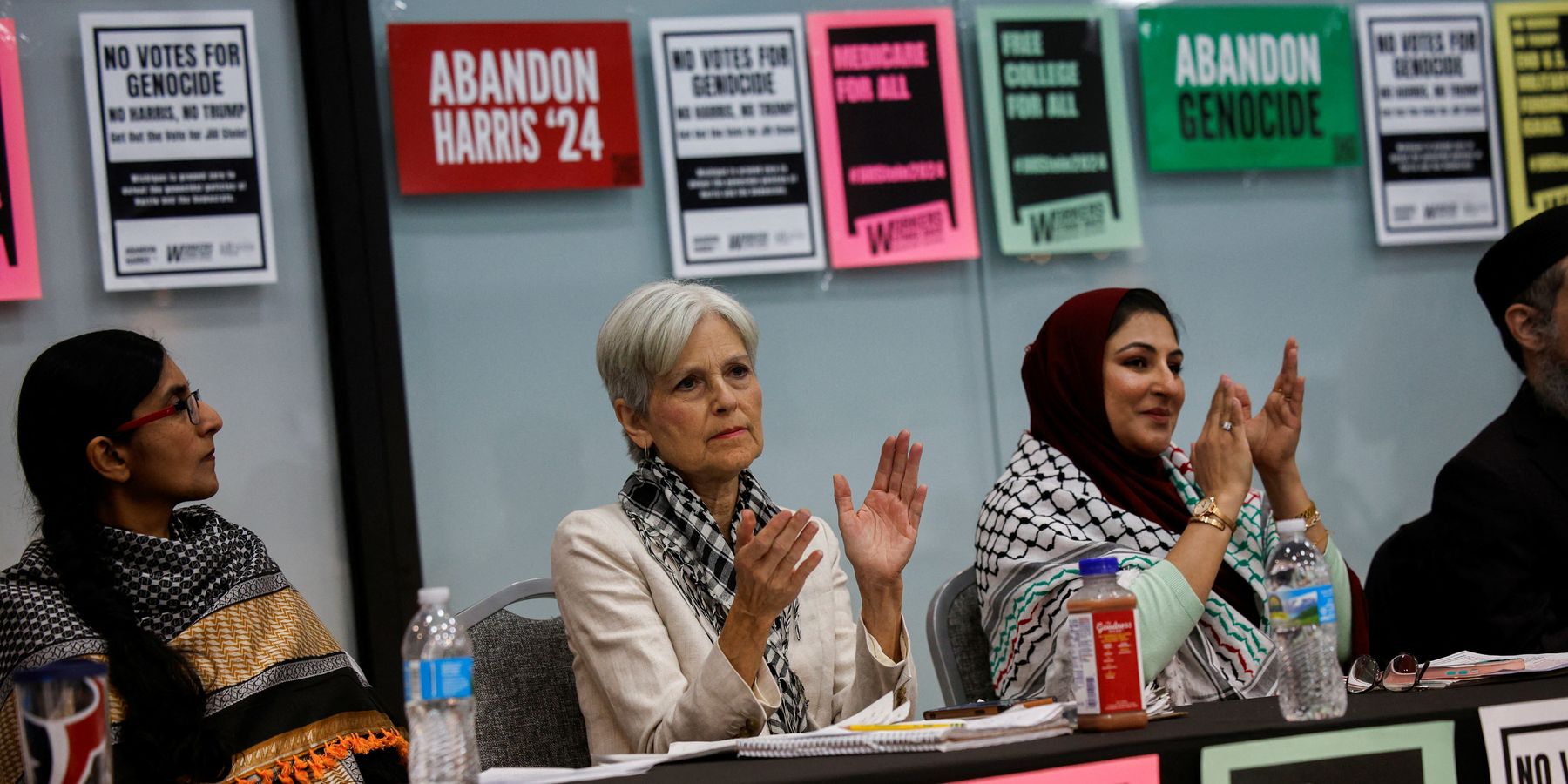A majority of Muslim-Americans voted for Green Party presidential candidate Jill Stein in this week’s election, while just 21 percent supported Republican Donald Trump and 20 percent voted for Vice President Kamala Harris, according to newly released data.
The survey, conducted by the Council on American-Islamic Relations (CAIR) and released on Friday, polled 1,575 verified Muslim-American voters nationwide.
CAIR also released exit polling results from Michigan and Maryland voters. Out of the 502 Muslim-Americans surveyed in Michigan, 59% supported Dr. Stein, 22% voted for Trump, and 14% pulled the lever for Harris. Stein received 81% of the vote from Muslim-Americans in Maryland with Harris earning 12% and Trump around 4%.
The results stand in stark contrast to results from previous cycles. CAIR found that in 2020 President Biden had support from 69% of those surveyed, with Trump earning 17%, and other candidates 3%. Additionally, a study released in October of 2016 found that 72% of Muslim-American voters supported Hillary Clinton, while 4% voted for Trump, and 5% chose other candidates.
CAIR says the dramatic shift away from the Democratic Party candidate can be explained in large part by President Biden’s Middle East policy. ”Our final exit poll of American Muslim voters confirms that opposition to the Biden administration’s support for the war on Gaza played a crucial role,” CAIR National Government Affairs Director Robert S. McCaw said, “leading to a sharp drop in support for Vice President Harris compared to the support President Biden received from Muslim voters in 2020, and a sharp rise in support for third party candidate Jill Stein. President-Elect Trump also managed to make in-roads with Muslim voters.”
- Israel seeks to deport suspected terrorists’ families ›
- Did Israel hurt the Harris vote in Michigan? ›
















